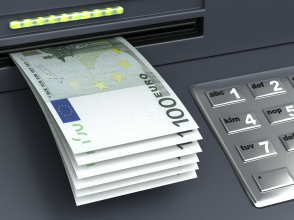
Cryptocurrency wallets - unveiling the secrets of cryptocurrency wallets
 In the ever-evolving landscape of the digital era, cryptocurrencies have emerged as a revolutionary force, reshaping the way we perceive and manage financial transactions.
In the ever-evolving landscape of the digital era, cryptocurrencies have emerged as a revolutionary force, reshaping the way we perceive and manage financial transactions. At the heart of this financial revolution lies the concept of cryptocurrency wallets – the secure gateways to the decentralized world of digital assets.
In this article, we will unravel the secrets of cryptocurrency wallets, exploring their types, functionalities, and some intriguing facts that make them an indispensable aspect of the blockchain universe.
Navigating the crypto jungle: unveiling the secrets of cryptocurrency wallets
Cryptocurrency wallets serve as the digital equivalents of traditional wallets, but with a twist – they don't store physical currency. Instead, they store cryptographic keys, allowing users to access and manage their digital assets on the blockchain.
These wallets come in various forms, catering to different preferences and security needs.
🔹 1. Types of Cryptocurrency Wallets:
- Hardware Wallets: Physical devices designed to store cryptocurrency offline, away from the vulnerabilities of online environments. Popular examples include Ledger Nano S and Trezor.
- Software Wallets: Applications or programs that can be installed on computers or mobile devices. They can further be classified into:
- Desktop Wallets: Installed on a computer and accessible only from that device.
- Mobile Wallets: Apps designed for smartphones, providing users with the flexibility to manage their digital assets on the go.
- Web Wallets: Online wallets that can be accessed through a web browser. Caution is advised with these, as they may expose users to online threats.
- Paper Wallets: Physical documents containing a public address for receiving cryptocurrency and a private key for spending or transferring funds.
- Brain Wallets: Wallets generated from a passphrase that the user memorizes. While convenient, they are susceptible to hacking if the passphrase is weak.
🔹 2. Functionality and Security:
- Public and Private Keys: A cryptocurrency wallet consists of a pair of cryptographic keys – a public key (used as an address for receiving funds) and a private key (used to sign transactions and access the funds). Keeping the private key secure is paramount to safeguarding your digital assets.
- Blockchain Integration: Cryptocurrency wallets interact with the blockchain to update and record transactions. They don't actually "store" the currency; instead, they provide a secure interface to manage ownership and transfer.
- Multi-Signature Wallets: Some wallets require multiple private keys to authorize a transaction, enhancing security by distributing control among multiple parties.
🔹 3. Interesting Facts about Cryptocurrency Wallets:
- Quantum Threats: The rise of quantum computing poses a potential threat to existing cryptographic algorithms. Some cryptocurrency projects are already working on quantum-resistant algorithms to future-proof wallets.
- Lost Fortunes: It is estimated that a significant percentage of all bitcoins mined are lost forever due to forgotten passwords or lost keys. This adds an element of scarcity to the cryptocurrency market.
- Pizza Day: The first real-world transaction using Bitcoin was the purchase of two pizzas for 10,000 BTC in 2010. Today, those bitcoins would be worth millions of dollars, making it one of the most expensive pizzas in history.
- Crypto Inheritance: With the increasing popularity of cryptocurrencies, services now exist that allow users to set up plans for the transfer of their digital assets in the event of their demise.
Summary
Cryptocurrency wallets stand as the guardians of our digital wealth, providing both convenience and security in an increasingly digital financial landscape. As technology advances, so too will the capabilities and features of these wallets.
Understanding the intricacies of cryptocurrency wallets is not only essential for active participants in the crypto space but also for anyone curious about the future of finance.
As we continue to unveil the secrets of these digital fortresses, we embark on a journey toward a more decentralized and secure financial ecosystem.
Other News

Add a review











 Unraveling the Nexus - Symbiosis between Markets + Cryptocurrency
Unraveling the Nexus - Symbiosis between Markets + Cryptocurrency The rise of robo-advisors - how auto investing is changing the game
The rise of robo-advisors - how auto investing is changing the game How to assess the credibility - and track record of a HYIP program
How to assess the credibility - and track record of a HYIP program Realistic goals - setting realistic goals for online investments
Realistic goals - setting realistic goals for online investments Withdrawal Process - unveiling the withdrawal process in HYIP monitor
Withdrawal Process - unveiling the withdrawal process in HYIP monitor









